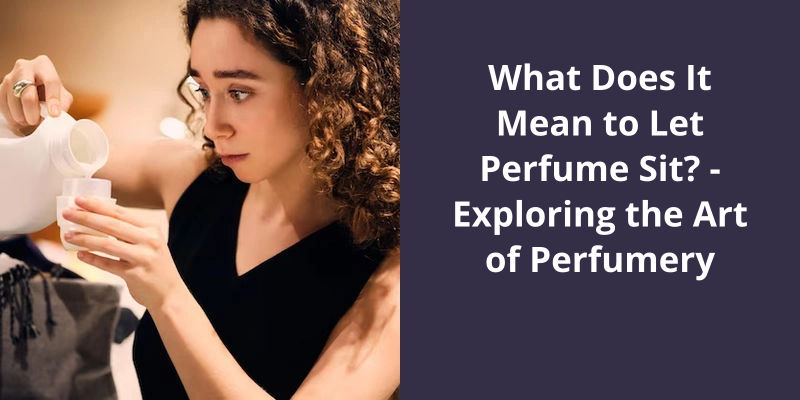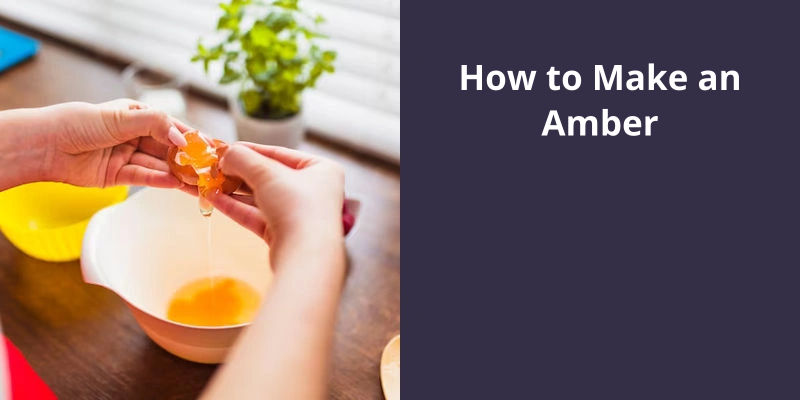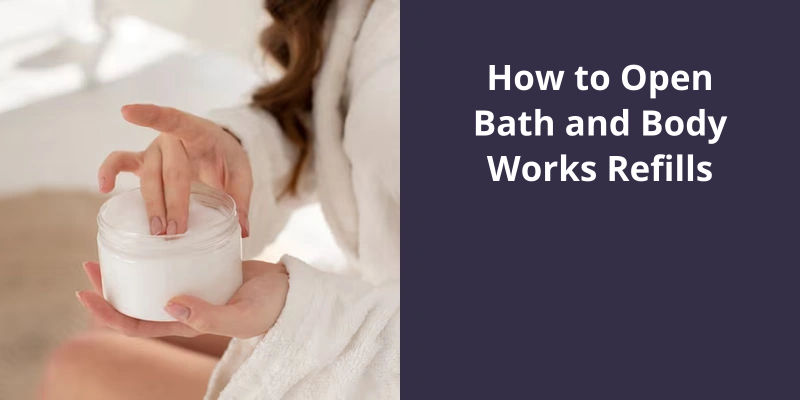Letting perfume sit means allowing it to settle on your skin and blend with your body’s chemistry before evaluating its true scent. After applying perfume, it goes through various stages, or “notes.” The initial scent that hits your nose is called the “top note,” which quickly evaporates to reveal the “heart” or “middle note.” Then, there’s the “base note,” which is the fragrance’s deepest and richest layer, and it emerges about 30 minutes after application. By allowing the perfume to sit, you experience all these notes and get a full impression of the fragrance. It’s an important step in exploring the art of perfumery as it gives you a true understanding of what a particular perfume will smell like on you.

What Does It Mean to Let a Perfume Rest?
Resting refers to the process of allowing a perfume to settle and mature before experiencing it’s true fragrance. When a perfume is created, it contains a blend of various volatile compounds that come together to create it’s distinct scent. However, the process of production and transportation can expose the perfume to extreme temperatures, which may temporarily alter it’s aroma. Therefore, it’s recommended to let the perfume sit for a couple of days upon receiving it in the mail.
Extreme heat or cold during travel can cause the volatile compounds in the perfume to become unstable and undergo chemical reactions, resulting in a slightly different scent than intended by the perfumer. By letting the perfume rest, these compounds can readjust and settle back into their original composition, allowing the true aroma to emerge.
Additionally, the resting process can be particularly beneficial for natural perfumes. Natural ingredients tend to have more complex molecular structures compared to synthetic ones, which means they require more time to stabilize and reveal their full potential. Allowing these natural ingredients to settle and integrate can enhance the fragrances depth and complexity.
It’s important to note that the resting time for perfumes can vary depending on the composition and ingredients used. Some perfumes may require only a few days of rest, while others may benefit from weeks or even months. It ultimately depends on the individual perfume and personal preference. By giving a perfume the time it needs to rest, one can ensure a more accurate and enjoyable olfactory experience.
Sillage, a term derived from the French word for “wake,” is used in the realm of perfumes to characterize the captivating trail left behind by a fragrance as it interacts with the skin. This enchanting phenomenon occurs as the scent gracefully diffuses and lingers in the air, following the movements of the wearer.
What Is the Word for the Trail of Perfume?
Sillage, a beautiful and mystical word derived from the French language, holds a special place in the world of perfumery. It captures the essence of perfume in motion, the enchanting trail that accompanies a wearer as they gracefully move through space. Similar to how a boat creates a wake in it’s path, perfume creates sillage as it touches the skin, leaving a sensual and captivating scent behind.
Some perfumes have a subtle and delicate sillage, silently whispering their presence, while others possess a more powerful and commanding aura, effortlessly commanding attention. The trail left behind by a perfume can evoke emotions, memories, and even influence the impression one leaves on others.
The art of allowing perfume to sit on the skin is an essential practice in exploring it’s sillage. By giving perfume time to settle and integrate with the natural oils of the skin, it’s true character and sillage can emerge. This process allows the various notes and accords to blend harmoniously, unveiling the perfumes full potential. Patience in this regard is rewarded, as the fragrance gradually reveals it’s true nature, creating a unique and personalized sillage that’s as distinctive as the wearer themselves.
It adds depth, dimension, and allure to a fragrance. It transforms a mere scent into a mesmerizing aura that captivates all those who encounter it. So, next time you spritz on your favorite perfume, take a moment to appreciate the enchanting sillage it creates, and revel in the magic of perfume in motion.
Source: Sillage (perfume) – Wikipedia
In addition to professional advice, there are other effective ways to fix a perfume overdose. For instance, Elizabeth Siegel, deputy beauty director of Allure Magazine and an experienced beauty journalist, suggests using rubbing alcohol to dilute the overpowering scent. This simple solution can come in handy when you find yourself in situations where you’ve sprayed too much perfume.
How Do You Fix Perfume Smell?
Perfume is an art, carefully crafted to evoke sensorial experiences and leave a lasting impression. However, weve all been in situations where weve sprayed a little too much, accidentally overpowering the room with an intense fragrance that may not be well-received by those around us. So, what can we do to fix a perfume smell that’s just too strong?
One simple solution is to reach for rubbing alcohol. Elizabeth Siegel, the deputy beauty director of Allure Magazine and a beauty journalist with extensive experience, suggests using a cotton ball dipped in rubbing alcohol and dabbing it on the areas where you’ve sprayed too much perfume. The rubbing alcohol acts as a quick diluter, helping to tone down the overpowering scent. This can be particularly helpful for those instances when we may have gone a bit heavy-handed on the spritzing.
When using this technique, it’s important to be mindful of the surface on which you apply the rubbing alcohol. If you’re dealing with a fabric or delicate material, it’s advisable to test the rubbing alcohol on a small, inconspicuous area first, to ensure that it doesn’t cause any damage or discoloration. Additionally, it’s crucial to use rubbing alcohol in moderation and approach the process with care, as excessive rubbing alcohol application may strip the fragrance entirely.
Another option to adjust the strength of a perfume smell is to introduce a contrasting scent that can help to balance out or complement the overpowering fragrance. This can be done by layering another, more subtle perfume on top of the intense one. By carefully selecting a fragrance that harmoniously blends with the overpowering scent, you can create a more pleasing and well-balanced aroma.
However, there are certain signs that indicate a perfume has gone bad, such as a changed scent or the presence of sediment. Storing perfume in a cool, dark place and avoiding exposure to extreme temperatures and sunlight can help extend it’s shelf life.
Does Perfume Go Bad Over Time?
Perfume, like any other product, has a shelf life. Over time, the chemical compounds within the fragrance can break down and deteriorate, resulting in a change in scent or even the complete loss of fragrance. So, does perfume go bad over time? The short answer is yes.
Unlike food or medication, most perfumes don’t have a printed expiration date. The general rule of thumb, however, is that perfumes can last anywhere between 1 to 10 years, depending on the brand and specific formula. So, if you’ve a beloved perfume that’s been sitting on your shelf for several years, it may be time to give it a sniff test before assuming it’s still good to use.
It’s important to note that perfume may not necessarily become harmful or dangerous to use after it expires; it simply loses it’s original aroma and may smell off or unpleasant. Some people might not mind a slight change in scent, while others might find it off-putting. Ultimately, it’s a matter of personal preference.
To extend the lifespan of your perfumes, it’s crucial to handle them with care. Keep them away from extreme temperature conditions and avoid storing them in humid environments like bathrooms, as moisture can also affect the fragrance. Additionally, tightly sealing the bottles after each use can help minimize exposure to air and prolong their freshness.
And remember, if a perfume has lost it’s pleasant scent, it may be time to let it go and explore new fragrances.
a fresh start with the next fragrance. However, it’s not just coffee beans that can reset the smell of perfume. In fact, there are various methods you can try to ensure that each scent is enjoyed to it’s fullest potential. By understanding how to reset your sense of smell, you can better appreciate the complexity and nuances of every fragrance you encounter.
How Do You Reset the Smell of Perfume?
When it comes to exploring the art of perfumery, allowing perfume to sit can be a crucial step in fully experiencing and understanding it’s complexity. This process involves giving the fragrance time to settle on the skin or in the bottle, allowing the various notes and accords to develop and intertwine. By letting perfume sit, the initial burst of top notes subsides, revealing the heart and base notes that contribute to the overall fragrance composition.
Letting perfume sit on the skin allows the fragrance to interact with your body chemistry, creating a unique scent that’s influenced by your own pH levels and natural odors. This personalized scent is often referred to as the perfumes dry down and can be significantly different from the initial application. By giving the perfume time to mature on your skin, you can better gauge how it responds and how long it lasts throughout the day.
To reset the smell of perfume during testing, it’s essential to cleanse the palate, so to speak. This involves smelling something neutral or with a different, distinct scent between each perfume you try. The most common method used in perfume stores is sniffing coffee beans, as the strong aroma helps neutralize the olfactory senses and prepare them for a new scent. Other alternatives include smelling your own skin or clothing, taking a break from smelling altogether, or even smelling fresh air to clear the nasal passages. By resetting your nose between scents, you can avoid olfactory fatigue and truly appreciate the nuances of each fragrance.
Different Methods of Perfume Application: Examining the Impact of Applying Perfume to Different Areas of the Body, Such as Pulse Points Versus Clothing, and How It Can Affect the Fragrance.
- Applying perfume directly to pulse points on the body
- Spraying perfume onto clothing
- Dabbing perfume onto the hair
- Using a perfume atomizer or spritzing the fragrance into the air and walking through it
- Mixing perfume with unscented lotion and applying to the skin
- Applying a scented oil or solid perfume to specific areas
Conclusion
Allowing fragrances to age for extended periods, akin to the aging process of wine or liquor, can lead to remarkable refinement. However, it’s important to acknowledge that not all perfumes will undergo transformation, and even if they do, it may not always align with our personal preferences. The act of letting perfume sit embodies a patient and curious approach, enabling us to appreciate the complexity and evolution of scents over time. While some may find delight in the enhanced nuances and exquisite transformations, others may realize that their initial impressions were indeed the most pleasing.





